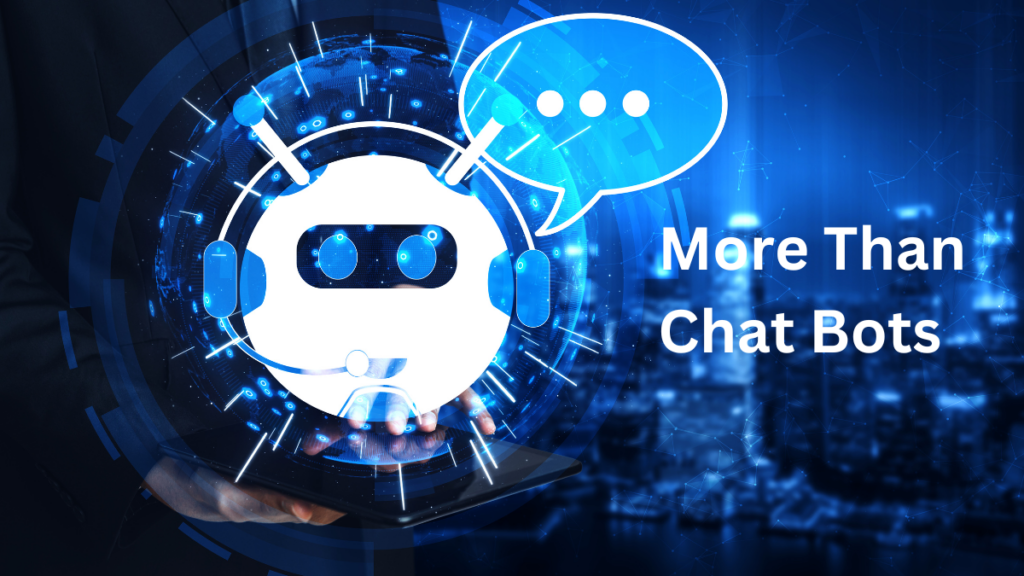Artificial Intelligence (AI) is rapidly changing the way we live and work. The technology is becoming more sophisticated and is being used in an ever-increasing number of industries. The ability of AI to process large amounts of data quickly and accurately is making it a valuable tool in a wide range of industries, from chatbots to agriculture, ecommerce to education, finance to healthcare, and marketing.
Artificial Intelligence (AI) is rapidly changing how we live and work. Technology is becoming more sophisticated and is being used in an ever-increasing number of industries. The uses of AI are far-reaching, and it is becoming an essential tool for many businesses. The ability of AI to process large amounts of data quickly and accurately makes it a valuable tool in a wide range of industries. From chatbots to agriculture, e-commerce to education, finance to healthcare, and marketing, AI is helping to improve efficiency and drive innovation.
Chatbots are a prime example of how AI is being used to improve customer service. The release of advanced language processing models like ChatGPT has given the world a taste of future chatbots. ChatGPT interacts with users in a conversational way to answer questions and even challenge certain ideas. Thousands of companies have adopted AI-based chatbots to provide 24/7 customer support and resolve quick issues. As AI continues to evolve, chatbots’ language processing will likely grow more sophisticated.
AI is also making a big impact in agriculture. Computer vision and machine learning have produced apps that can identify soil deficiencies and provide planting recommendations. AI is also being used to inform “precision agriculture,” whereby farmers use AI to analyze weather patterns to predict forecasts and planting schedules, determine the best crops to grow, address pest attacks, measure soil conductivity and pH, and even help with crop harvesting through the use of robotics.
The eCommerce industry has also capitalized on the power of AI. Companies use AI to predict trends, analyze performance, assist with inventory management, and more. AI’s ability to track usage patterns and verify information has also made it a powerful tool in the fight against credit card fraud and fake online reviews. AI forms the basis of “recommendation engines” that show shoppers products based on their browsing history and preferences.
Education is another area where AI is making a big impact. While the industry is still dominated by human personnel, AI is helping to boost educators’ potential. AI is being used to facilitate automation in repetitive and data-heavy tasks such as grading homework, scheduling meetings, managing multiple online courses, sending personalized communications to students, and creating or digitizing lectures and study guides. AI is also being used in the form of chatbots to quickly answer routine questions, freeing up educators to spend more time on complex tasks.
The field of finance has also leaned heavily into the use of AI. Customers can use AI to get information about their banking and investment accounts. Banks and credit card firms rely on AI to detect transaction patterns and changes to catch fraud. Lenders use AI to predict and assess borrowers’ risk levels and make lending decisions. Venture capital firms adopt AI to generate customized insights and financial risk management decisions. Robo-advisors and financial management services are also using AI to automate trading.
Healthcare is another area where AI is making a big impact. On the less interesting side, AI is helping administrators process data, schedule meetings, organize files, and transcribe medical notes. On the more exciting side, robots are relying on AI to automate surgeries. Machine-led surgeries are more precise and less invasive, have a smaller margin for error, and can run 24/7. AI is also being used to assist in medical diagnoses by tracking health using wearable devices and indicating problems before patients are aware. Some programs are using AI to help interpret body scans (like MRIs) to detect harmful growths with greater speed and accuracy. Pharmaceutical companies are even using AIs to analyze historical and modern data to discover new potential drugs.
Marketing is another common application of AI. AI’s ability to analyze data quickly is useful for teams that need to generate and act on insights quickly. AI generates campaign reports, improves customer engagement, personalizes messages, delivers online retargeting campaigns, and pivots advertising methodology mid-campaign based on new insights. Chatbots also fall into this category, as language processing plays a key role in an effective marketing strategy.
As we can see, AI is making a big impact in many industries, and the future looks bright. As technology continues to evolve, we can expect to see even more innovative applications of AI across a wide range of industries. We can expect AI to continue to improve efficiency and drive innovation. However, it is important to note that the integration of AI in these industries should be done with caution, as there are also ethical concerns to consider, such as job displacement and potential bias in decision-making.
In conclusion, AI is a powerful technology already making a big impact in many industries. The ability of AI to process large amounts of data quickly and accurately makes it a valuable tool for businesses of all sizes. As the technology continues to evolve, we can expect to see even more innovative applications of AI across a wide range of industries. However, we must also be aware of the ethical concerns and work to address them as we move forward. The future looks bright for AI, and it will be exciting to see how it continues to shape our world.

